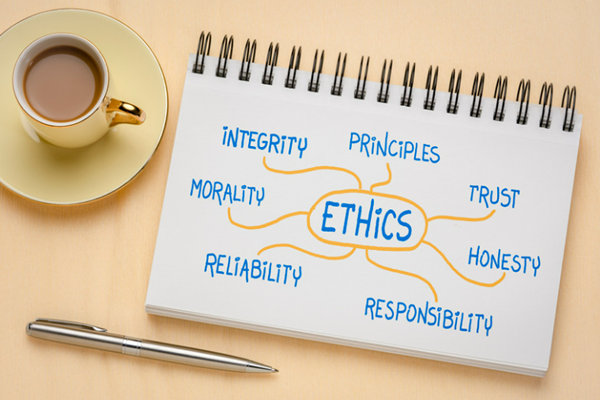In the busy landscape of modern workplaces, where goals are set, tasks are accomplished, and projects are completed, there lies a silent yet powerful force that shapes the very essence of organizational life: ethics and workplace culture. Imagine stepping into an office where honesty reigns supreme, respect is the language of communication, and integrity is the guiding star for decision-making. Such an environment isn’t just a utopian dream but a cornerstone for success and sustainability. In this article, we’ll delve into the profound significance of ethics and workplace culture, exploring why they are not just desirable but indispensable for any thriving organization.
Understanding Ethics and Workplace Culture:
Defining Ethics:

Ethics, simply put, are the moral principles that govern an individual’s behavior or the conduct of a group. In the workplace context, ethics delineate what is considered right or wrong in the realm of professional conduct. It involves making decisions based on honesty, fairness, respect, and responsibility. For example, ethical behavior in the workplace may involve treating all employees equally, respecting confidentiality, and avoiding conflicts of interest.
Unveiling Workplace Culture:

Workplace culture, on the other hand, is the collective personality of an organization, encompassing its values, beliefs, behaviors, and interactions. It’s the invisible glue that binds employees together and shapes their experiences within the organization. A positive workplace culture fosters collaboration, innovation, and employee well-being. Elements of workplace culture include communication styles, dress codes, work-life balance, and organizational rituals.
Why Ethics and Workplace Culture Matter:
- Fostering Trust and Integrity: A culture steeped in ethics breeds trust among employees, as they are confident that their colleagues and leaders will act with integrity and uphold shared values. Trust is the foundation of strong relationships and effective teamwork. Employees who trust their coworkers and leaders are more likely to collaborate, share ideas, and work towards common goals.
- Enhancing Employee Engagement: When employees feel a strong sense of alignment between their values and those of the organization, they are more likely to be engaged and motivated in their work. Engaged employees are more productive, creative, and committed to achieving organizational goals. They are also more likely to go above and beyond their job duties and take ownership of their work.
- Attracting and Retaining Talent: In today’s competitive job market, top talent gravitates toward organizations with a reputation for ethical conduct and a positive workplace culture. Employees are more likely to stay loyal to companies that prioritize their well-being and provide opportunities for growth and development. Organizations that value ethics and culture are seen as desirable places to work, leading to higher employee retention rates and lower turnover costs.
- Boosting Performance and Innovation: Ethical workplaces cultivate an environment where employees feel safe to voice their opinions, take calculated risks, and innovate without fear of reprisal or judgment. When employees are empowered to speak up and share their ideas, organizations can harness the collective intelligence of their workforce and drive continuous improvement. Ethical leaders encourage open communication, welcome feedback, and support experimentation. As a result, employees feel valued, respected, and motivated to contribute their best efforts.
How to Cultivate a Culture of Ethics:
- Lead by Example: Ethical behavior starts at the top. Leaders must model the values and principles they wish to see reflected throughout the organization. When leaders demonstrate integrity, transparency, and accountability, they set a positive example for employees to follow. Leaders should communicate clear expectations, provide guidance and support, and hold themselves accountable for their actions.
- Communicate Clear Expectations: Establishing transparent guidelines and codes of conduct helps employees understand what is expected of them and reinforces the organization’s commitment to ethics. Effective communication fosters clarity, reduces ambiguity, and promotes a culture of openness and trust. Leaders should communicate regularly with employees, listen to their concerns, and address any ethical issues.
- Provide Ongoing Training: Regular training sessions on ethical decision-making and workplace behavior empower employees with the knowledge and tools to navigate ethical dilemmas effectively. Training programs should cover topics such as conflict resolution, diversity and inclusion, and ethical leadership. By investing in employee development, organizations can build a skilled and ethical workforce that contributes to their long-term success.
- Recognize and Reward Ethical Behavior: Celebrating instances of integrity and ethical conduct reinforces the desired behaviors and encourages others to follow suit. Recognition can take the form of praise, awards, bonuses, or other incentives that reinforce the organization’s values and promote a culture of appreciation and recognition. By acknowledging and rewarding ethical behavior, organizations reinforce their commitment to ethics and inspire others to uphold the same standards.
In conclusion, ethics and workplace culture are not mere buzzwords but the lifeblood of any successful organization. By nurturing a culture grounded in ethics, organizations can foster trust, enhance employee engagement, attract top talent, and drive performance and innovation. As leaders and employees embrace ethical principles and champion a positive workplace culture, they pave the way for a brighter, more sustainable future for themselves and their organizations.



